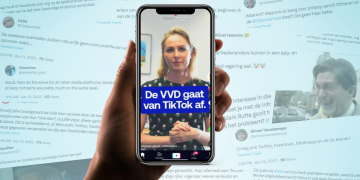
© Femke van Bree
On April 13th, 2023, the VVD announced their retreat from TikTok. How did Twitter users respond to this announcement, and which perspectives regarding TikTok and digital privacy arise? This article intends to find answers to these questions.